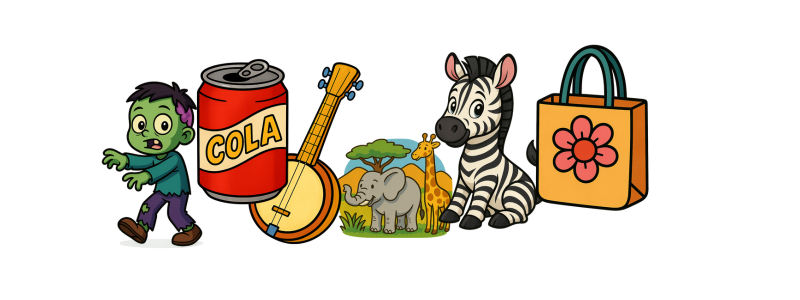
The English words with African roots
Share
Did you know you’ve probably been speaking African languages without even realising it? Words like banjo, gumbo, or safari didn’t come from Shakespeare, they came straight out of Africa! Over the centuries, trade, travel, and culture carried African words into English, where they’ve stayed, often with their stories hidden in plain sight.
From the kitchen to the dance floor, from spirituality to mother nature, and even fashion, here are the African words that found their way into the English lexicon.
1. Cola (from the kola nut, West Africa)
The kola nut (goro in Hausa, obi in Igbo) was vital in African trade and rituals. When it reached the West, it gave us the word cola, which eventually spawned Coca-Cola. Yes, the original recipe that gave Coca-Cola its distinct taste contained kola nut extract.
2. Gumbo (from Central/West Africa)
This beloved American Southern dish takes its name from the word ngombo (okra) in Bantu languages. The dish blends West African, Native American and European culinary traditions into a thick flavourful stew containing okra or filé powder (ground sassafras leaves). Okra itself was carried by Africans across the Atlantic during the slave trade.
3. Okra (from Igbo ọ́kụ̀rụ̀)
A staple vegetable across African and African diaspora cuisine, okra entered English through the slave trade from West Africa, specifically Igbo.
4. Yam (from Fulani nyami and Wolof nyam, “to eat”)
The word yam entered English through Portuguese (inhame) and Spanish (igname), but its roots lie in West Africa. In Fulani, nyami means “to eat,” in Wolof it’s nyam, and in Twi, anyinam carries the same idea. So the staple crop wasn’t just a food, it was the very act of eating. Today, yams are enjoyed worldwide, from Lagos streets to Thanksgiving tables.
5. Banjo (from West Africa)
The word banjo traces back to the Kimbundu word mbanza (a stringed instrument). Enslaved Africans brought the instrument to the Americas, where it evolved into the banjo we know today.
6. Jive (from African American vernacular, rooted in Wolof)
The Wolof word jev means “to talk about” or “discuss.” It crossed over into African American communities and became jive, meaning lively talk, jazz culture, and later dance.
7. Jazz (likely from West African slang via African American communities)
Though debated, many trace jazz back to African languages where rhythm and vitality words like jasm (energy, spirit) shaped its meaning.
8. Funk (possibly from Kikongo)
The musical term funk may come from the Kikongo word lu-fuki, meaning “bad body odor,” linked to working hard and sweating. Africans in diaspora flipped it into a term of rhythm, soul, and groove.
9. Voodoo (from Fon/Ewe, West Africa)
Vodun means “spirit” in Fon/Ewe languages of Benin and Togo. It travelled with enslaved people to Haiti and Louisiana, where it became voodoo in English.
10. Zombie (from Kongo/Niger-Congo)
From the Kongo word nzambi (spirit of the dead), zombie was carried to the Americas in Haitian folklore before becoming a staple of English horror stories.
11. Safari (from Swahili)
Safari means “journey” in Swahili, which itself borrowed it from Arabic (safar). The word entered English during colonial encounters in East Africa, but the root is purely African.
12. Zebra (from Kongo/Amharic routes)
The name of Africa’s most iconic striped animal came to English via Portuguese explorers, who borrowed “zebra” from African languages like Kongo and Amharic.
13. Jumbo (from Kongo nzamba, “elephant”)
The world’s most famous elephant, Jumbo, lived in London Zoo in the 1800s. His name came from the Kongo word nzamba: elephant. Now jumbo means anything huge.
14. Tote (from West African languages)
The English verb to tote (to carry) likely comes from Kongo or Kikongo words like tota, meaning “to pick up” or “carry.”
If you like this, read What native language rules Afrobeats? Yoruba, Pidgin, Twi, or Igbo?
